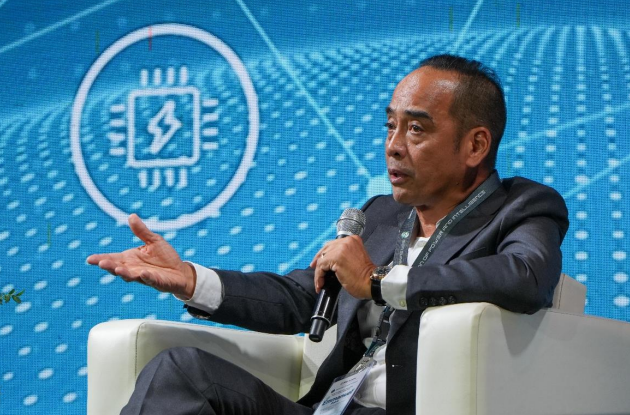Beyond Technology: MGEN Calls for Unity in the Philippine Energy Transition
- April 25, 2025
- 0

At the 2025 Giga Summit hosted by the Meralco Power Academy, Meralco PowerGen Corporation (MGEN) President and CEO Emmanuel V. Rubios stressed the importance of collaboration across the entire Philippine energy sector to drive a truly inclusive and effective energy transition.
Speaking before industry leaders, regulators, and innovators, Rubio outlined the urgent need for systemic transformation—one that goes beyond technological advancement to include aligned policy frameworks, coordinated investments, and a well-prepared talent pool. “Technology alone will not deliver the energy transition,” he stated, emphasizing the important role of collective leadership and shared responsibility.
At the core of Rubio’s message was the framework of the Three Ds of Energy: Decarbonization, Digitization, and Decentralization. These pillars, as he explained, are essential to creating a power sector that is not only modernized and climate-resilient, but also more responsive to the needs of the local communities where it operates. MGEN also added a fourth pillar—Democratization—to represent the broader vision of empowering individuals, businesses, and barangays to shape their own energy futures.
“We need to enable a future where power is no longer concentrated, but shared; a future where energy is not just consumed, but co-created,” Rubio said, calling for a national effort to rethink how energy is produced, distributed, and governed.
During the Summit’s second-day panel discussion, “The Future of the Philippine Power Industry,” Rubio addressed the ongoing challenge of balancing energy security, affordability, and sustainability. He referenced insights from Day 1 speakers, including Department of Energy Secretary Raphael Lotilla, Energy Regulatory Commission Chairperson Mona Dimalanta, and Senator Allan Peter Cayetano, to underscore the importance of policy alignment and industry-wide cooperation.
MGEN also provided updates on its clean energy initiatives. The company reported that it is on track to exceed its 2030 renewable energy goal of 1,500 megawatts by 2027, reflecting accelerated investment in sustainable infrastructure. On the digital front, Rubio called for greater support in building intelligent, data-driven systems that improve operational efficiency and consumer access. He also mentioned the emerging role of Distributed Energy Resources (DERs)—such as solar rooftops, battery storage, and embedded generation—as central to a more resilient and localized grid.
Talent development remains an important part of MGEN’s strategy. Through the Meralco Power Academy and programs like FISSION, which equips young Filipino engineers with critical international expertise, the company is investing in long-term human capital to support the country’s ever-changing energy landscape.
“The energy transition demands more than vision—it requires bold action, unity, and leadership,” Rubio concluded. “At MGEN, we are ready to lead this charge, but it will take all of us—utilities, developers, policymakers, and innovators—to shape a brighter energy future for every Filipino.”
As the country faces rising energy demands and a shifting global climate agenda, MGEN’s call for sector-wide collaboration adds urgency—and direction—to the national dialogue on power and sustainability.
Do you agree with Rubio’s statements? What should the future of energy security look like?
Follow Power Philippines on Facebook and LinkedIn for more updates.